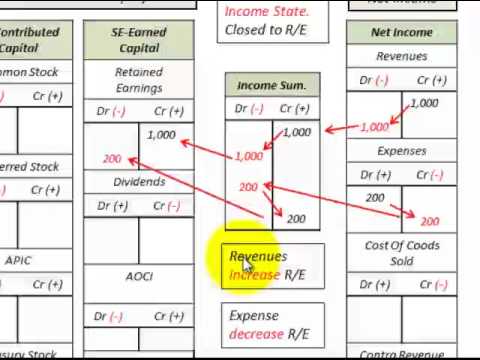Occasionally, OpEx can be consolidated into a single line item, but the standard layout is for the expenses to be broken out into multiple line items. Information rights management (IRM) is a discipline that involves managing, controlling Operating Expenses and securing content from unwanted access. Cloud computing services are usually bought through Opex, which provides flexibility. A company only pays for what its users consume rather than a specified amount of resources.
However, the IRS and most accounting principles distinguish between operating expenses and capital expenditures. It typically relates to recurring expenses such as rent, interest payments, insurance payments, and bank fees. Since operating income takes into account operating costs (i.e. COGS and OpEx), it represents the cash flow from core operations before accounting for other non-core sources of income/expenses. Operational expenditures are listed on income statements and can be deducted for the year in which the expenses occurred. Capital expenditures are spent on the improvement or purchase of fixed assets. Capital expenditures are listed on a company’s balance sheet — or in a cash flow statement when they are considered as investments.
Proven Suggestive Selling Techniques for Retailers
Non-operating expenses are expenses that do not relate directly to the business’s core operations. The most common examples of non-operating expenses are interest, taxes, depreciation and amortization. Less common non-operating expenses can also include inventory write-offs, restructuring costs and even settlements for lawsuits. To recap, operating expenses are the costs of running a business and may include costs such as rent, utilities, marketing and payroll. “Operating expenses are a necessary component of a business and should be analyzed and budgeted for,” said Distel.

On an income statement, “operating expenses” is the sum of a business’s operating expenses for a period of time, such as a month or year. All these expenses can be considered operating expenses, but when determining operating income using an income statement, interest expenses and income taxes are excluded. By deducting operating expenses from gross profit, the operating profit (EBIT) and operating margin can then be calculated, as shown below. Operating expenses are essential for analyzing a company’s operational performance.
What Is an Operating Expense?
Opex (operational expenditure) is the money a company or organization spends on an ongoing, day-to-day basis to run its business. Depending on the industry, these expenses can range from the ink used to print documents to the wages employees are paid. Businesses might also pay for cloud computing services and car leasing out of Opex. They include expenditures such as rent, inventory costs, marketing, and payroll, said Hillary Senko Cullum, a wholesale and retail consultant operating at HSC Advisors. Capital expenditures are assets that are purchased and have a multiyear life, and are used in the operations of the business. Purchasing machinery, for example, is considered a capital expenditure, whereas, repair and maintenance of the machinery is considered an operating expense.
- “This allows you to understand what areas are spending more and where you can potentially cut back,” she said.
- But all OPEX should be evaluated to see if it is positively impacting topline sales while not degrading bottom-line profits,” she said.
- Information rights management (IRM) is a discipline that involves managing, controlling and securing content from unwanted access.
- One of the responsibilities that management must contend with is determining how to reduce operating expenses without significantly affecting a firm’s ability to compete with its competitors.
However, reducing operating expenses can also compromise the integrity and quality of operations. Finding the right balance can be difficult but can yield significant rewards. As for our two operating expenses, SG&A and R&D, the two will remain the same percentage of revenue as Year 0. Next, we’ll project the income statement of our company down to the operating line. Operating expenses are paid for using gross profits, which are the earnings once COGS have been subtracted.
The significance of operating expenses
Operating expenses are the expenses that arise from daily, core operational activities conducted by a company. Typically, they’re tax deductible as long as a company operates to earn a profit, expenses are commonly known, and necessary. An operating expense is an expense that a business incurs through its normal business operations.
Opex is used for small, one-time or regularly occurring expenses; Capex is used for large, one-time expenses. For many businesses, the desire to achieve maximum value for money on each purchase has to be balanced against the need to maintain reliable cash flow. This can mean that companies make smaller purchases even though they know that buying in volume would be more economical. In the real world, there are two important facets to managing operating expenses successfully. Non-operating expenses still need to be monitored closely, so you can make financial decisions and accurately calculate your business’s earnings.
The amount left over after https://kelleysbookkeeping.com/what-is-the-purpose-of-the-cash-flow-statement/ have been deducted from gross revenue is known as operating income. For businesses, operating expenses may typically include supplies, advertising expenses, administration fees, wages, rent, and utility costs. When it comes to analyzing operating expenses, managers classify the expenses as either fixed or variable. A fixed cost remains the same no matter what the production level is, while variable cost does vary with the number of products or services that a company produces.
- When it comes to analyzing operating expenses, managers classify the expenses as either fixed or variable.
- Retailers are experiencing a general increase in expenses across the board, said Lee Whitaker, general manager at the Parker Avery Group.
- Unique to operating expenses, the majority of costs classified as OpEx are fixed costs, which means they are NOT directly linked to revenue.
- It is critical to note that operational activities differ greatly among industries.
- However, reducing operating expenses can also compromise the integrity and quality of operations.